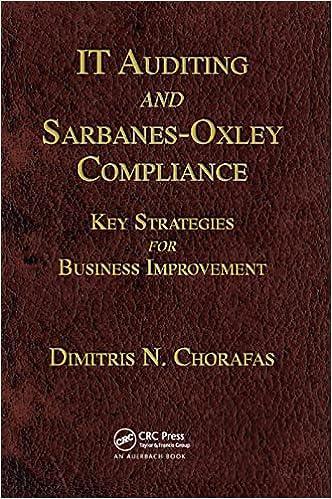Question
Dosley Endowment Fund, which supports the activities of the Dosley Charitable Trust, is relatively new and small in terms of assets under management. The trustees
Dosley Endowment Fund, which supports the activities of the Dosley Charitable Trust, is relatively new and small in terms of assets under management. The trustees of the endowment have adopted a conservative investment strategy: at the current time, all of the $800 million in assets are equally invested in an S&P 500 Index tracking fund and U.S. Treasury bonds. Right now, the annual dividend yield on the S&P 500 Index fund is 3.8%, whereas the annual coupon rate is 4.8% for the T-bonds. As the fund manager, you expect that over the next three months the market will be very volatile. Given that the priority of the trustees is to preserve the value of the endowment fund, you are required to use various derivative strategies to protect the assets under management. The current level of S&P 500 is 1,000, and the price of U.S. T-bonds is 100. Assume that the current three-month T-bill rate is 1.2%.
-
Using the derivative information listed below, determine the details of two derivative strategies that could be employed to protect the endowment's current asset value. Do not round intermediate calculations. Round your answers to the nearest whole number.
Contract size Expiration Current price Strike price S&P 500 Index Call option $46,000 3 months later $21.50 $1,000 Put option 46,000 3 months later 19.50 1,000 Future 225,000 3 months later 1,009.00 U.S. Treasury Bonds Call option $110,000 3 months later $6.00 $100 Put option 110,000 3 months later 6.50 100 Future 110,000 3 months later 100.30 Alternative 1: -Select-BuySell S&P 500 put options and Government bond put options.
Alternative 2: -Select-BuySell S&P futures and Government bond futures and -Select-buysell S&P call options and bond call options.
-
Applying the put-call parity relationship, which derivative strategy should you recommend and why? Do not round intermediate calculations. Round your answers to the nearest cent.
Recall that the put and futures prices are as follows:
Put Price = Call Price Security Price + Present Value of Exercise Price and Income on the Underlying Security
Futures Price = Underlying Security Price + (Treasury Bill Income Income on the Underlying Security)
Alternative 1:
S&P 500 put price: $
Bond put price: $
For the S&P 500 the put options appear -Select-overvaluedundervalued and the Government bond put options appear -Select-overvaluedundervalued compared to the prices of the calls.
Alternative 2:
S&P 500 future price: $
Bond future price: $
For the S&P 500 the futures are -Select-overvaluedundervalued and the Government bond futures are -Select-overvaluedundervalued .
-Select-Alternative 1Alternative 2 is recommended because protection is gained by -Select-buying expensive assetsselling expensive assetsbuying inexpensive assetsselling inexpensive assetsselling expensive assets and buying inexpensive assetsselling inexpensive assets and buying expensive assets .
Step by Step Solution
There are 3 Steps involved in it
Step: 1

Get Instant Access to Expert-Tailored Solutions
See step-by-step solutions with expert insights and AI powered tools for academic success
Step: 2

Step: 3

Ace Your Homework with AI
Get the answers you need in no time with our AI-driven, step-by-step assistance
Get Started


